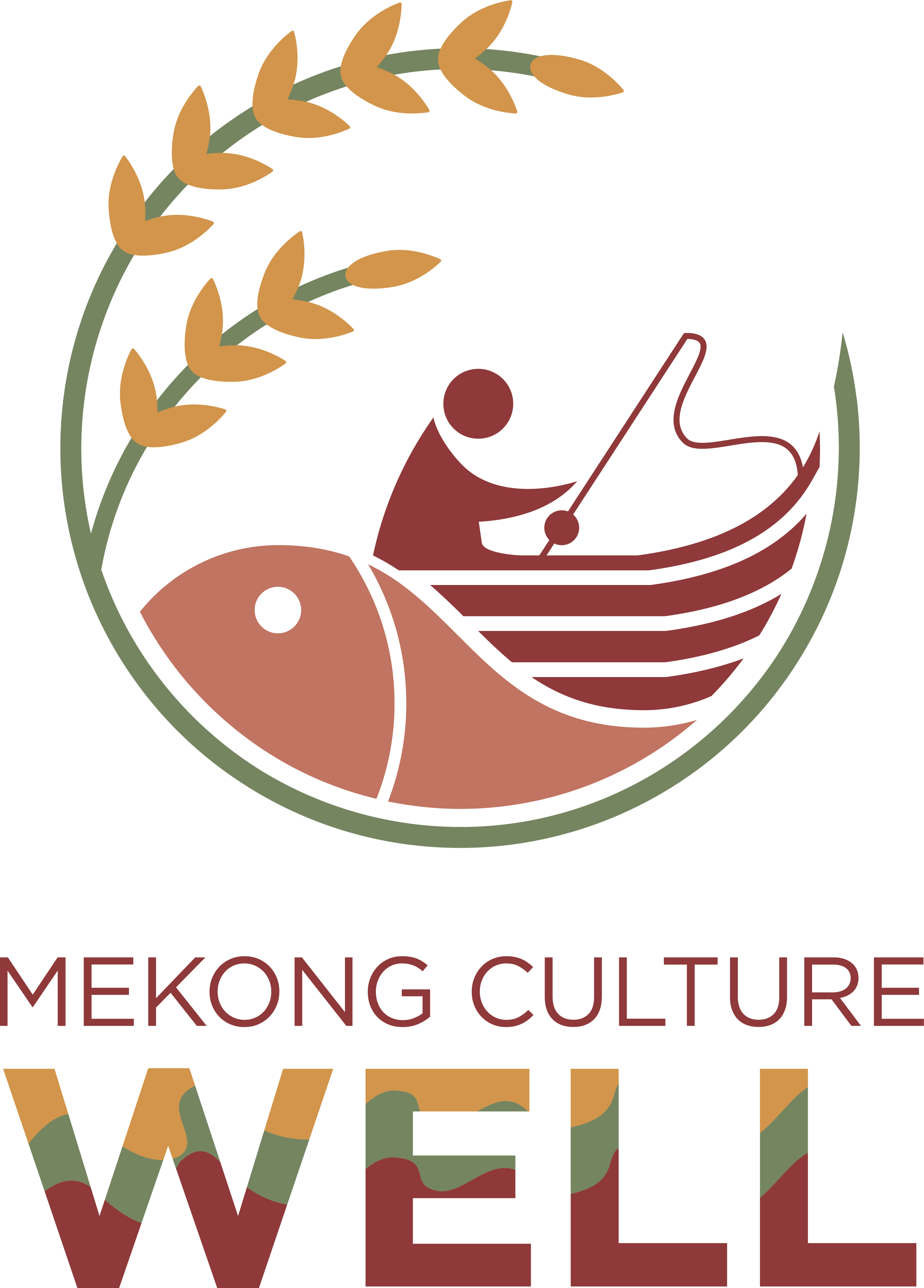
The Mekong River extends roughly 5000 kilometers (2,700 miles) from the Tibetan Plateau, down through Southwestern China, Myanmar (Burma), Laos, Thailand, Cambodia, and out through the dynamic and vast delta of Vietnam. One of the most biodiverse and productive rivers in the world, the Mekong has sustained and nourished communities for countless generations. Its immense abundance provides rice, fish, and a wide variety of other foods to and across the global food system.
However, the river is more than a critical source of food. For millions of people and communities across the Lower Mekong River Basin, the river has variably served as a home to sacred and powerful spirits, a place to gather and honor tradition, a sanctuary against violence, an imposing international border, and a wellspring of imagining collective and individual futures for the region.
Mekong Culture WELL (MCW) undertakes collaborative and innovative projects to understand complex and dynamic ecological, social, and cultural transformations that are taking place. We conduct and facilitate a diverse array of projects, activities, and learning opportunities in Mainland Southeast Asia, on the campus of Michigan State University, and virtually.
Land Acknowlegement
In our pursuit and support of freshwater justice initiatives, Mekong Culture WELL partners center the concerns and rights of Indigenous and rural communities in Southeast Asia, and pledge to support Indigenous rights and sovereignty. As a team based primarily at Michigan State University, the Mekong Culture WELL program collectively acknowledges that MSU occupies the ancestral, traditional, and contemporary Lands of the Anishinaabeg – Three Fires Confederacy of Ojibwe, Odawa, and Potawatomi peoples. In particular, the University resides on Land ceded in the 1819 Treaty of Saginaw. We recognize, support, and advocate for the sovereignty of Michigan’s twelve federally recognized Indian nations, for historic Indigenous communities in Michigan, for Indigenous individuals and communities who live here now, and for those who were forcibly removed from their Homelands. By offering this Land Acknowledgement, we affirm Indigenous sovereignty and will work to hold Michigan State University more accountable to the needs of American Indian and Indigenous peoples.